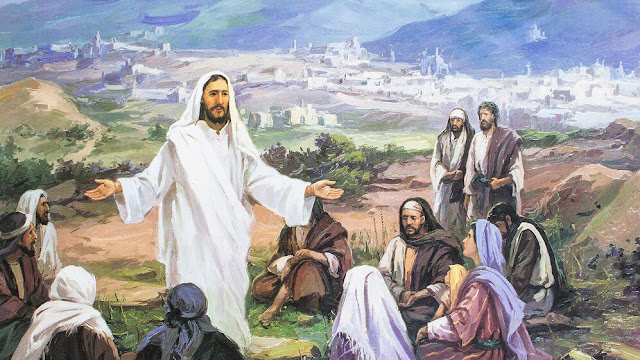In Matthew 20:16, Jesus is speaking to his disciples about the nature of the kingdom of heaven. He tells them that "many who are first will be last, and many who are last will be first." This statement is often interpreted as a warning against pride and a call to humility.
One interpretation of this verse is that Jesus is warning against the dangers of seeking status and power in the kingdom of heaven. He is telling his disciples that those who are first in the eyes of the world - the wealthy, the powerful, the influential - will not necessarily be first in the kingdom of God. Instead, it is the humble and the meek who will be first in the kingdom of heaven.
Another interpretation of this verse is that Jesus is emphasizing the importance of serving others. He is telling his disciples that in the kingdom of heaven, those who serve others will be first, rather than those who seek to be served. This is a reminder that true greatness in the kingdom of God comes from serving others, not from being served.
This verse also emphasizes that God's ways are not our ways and his thoughts are not our thoughts( Isaiah 55:8-9). The people who are last in the eyes of the world, the poor, the weak, the marginalized, will be first in the kingdom of heaven because they are the ones who are most in need of God's grace and mercy.
It is also important to note that the idea of the first being last and the last being first is not a new concept in the Bible. In Luke 14:11, Jesus says "For everyone who exalts himself will be humbled, and he who humbles himself will be exalted." This is similar to the teachings of Jesus in Matthew 20:16, and it emphasizes the importance of humility in the kingdom of God.
In addition, Jesus also taught that it is not about the status of being first or last, but about being faithful and obedient to God, regardless of the place where one finds himself in life. In Matthew 25:21, Jesus said "His master replied, 'Well done, good and faithful servant! You have been faithful with a few things; I will put you in charge of many things. Come and share your master's happiness!'
In conclusion, Jesus' statement in Matthew 20:16 serves as a reminder that in the kingdom of heaven, true greatness is not determined by one's status or position in the world, but by one's humility, service to others and faithfulness to God. It calls on us to resist the temptation to seek status and power and to instead focus on serving others and following God's will. It is a call to humility and a reminder that in God's kingdom, the last will be first and the first will be last.

ConversionConversion EmoticonEmoticon